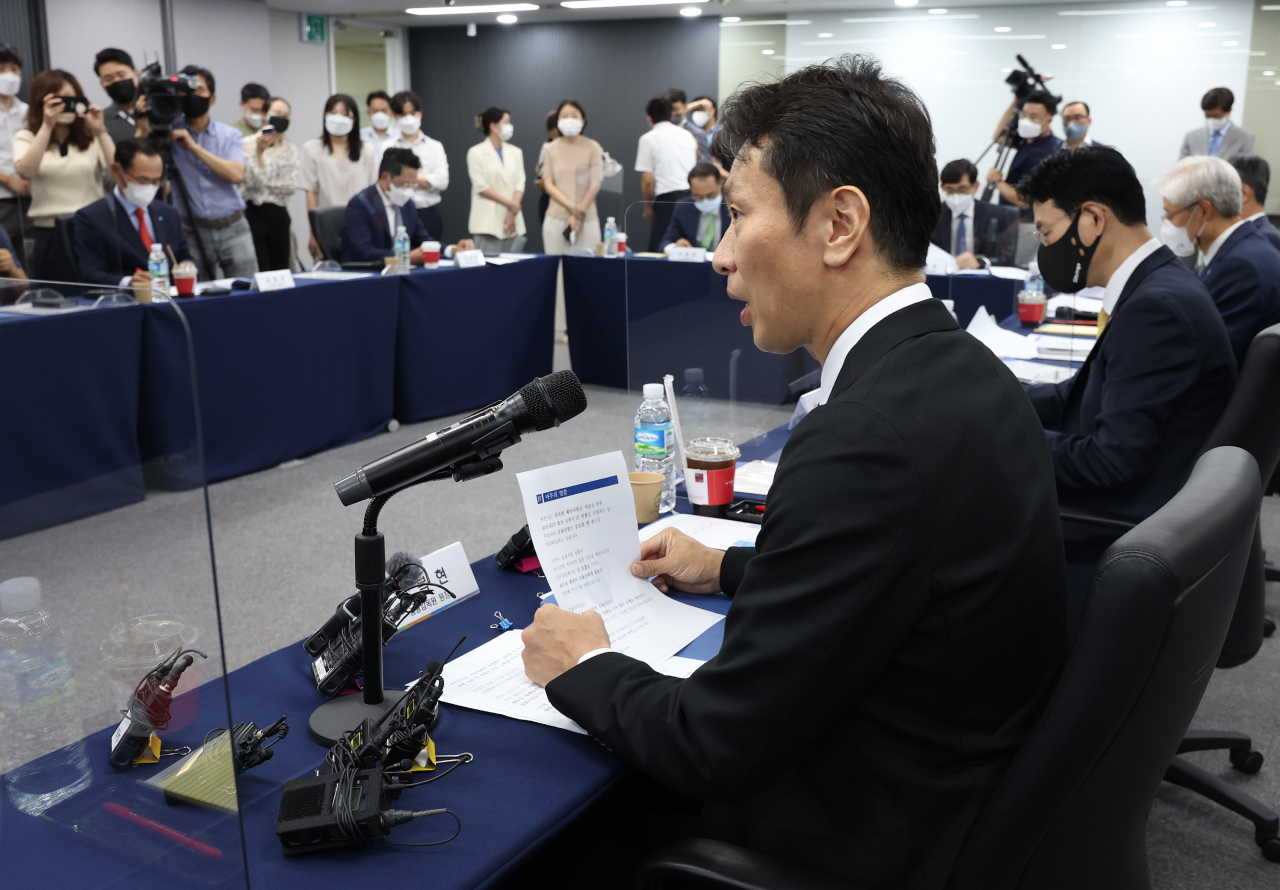
A top financial regulator on Friday called on savings banks in South Korea to intensify efforts to keep their asset management in good shape in the face of the rising possibility that their debt holdings could go sour amid fast-rising interest rates.
Lee Bok-hyun, the head of the Financial Supervisory Service (FSS), made the remark in a meeting with CEOs of major savings banks in Seoul, the latest in a series of gatherings he has held with financial leaders since taking office last month.
"When coronavirus-related financial support comes to an end and interest rates rise at a full-blown speed, the repayment capacity of borrowers is expected to worsen," Lee told the meeting.
"It is necessary to better manage lending to multiple household borrowers," he added. "Credit assessment and follow-up management on loans made to multiple borrowers should be intensified and loan-loss reserves should also be preemptively set aside to brace for the possibility of such loans going bad."
He still stressed the importance of savings banks playing their role of providing loans to people highly vulnerable to economic fluctuations as they did to help them in the throes of the pandemic.
Friday's meeting came after Lee had met top officials in various financial sectors, including banks and credit card firms, since taking office last month amid worries that fast-rising interest rates and a possible economic slump could spill over into the financial system.
Banks have recently raised lending rates at a fast clip in line with the Bank of Korea (BOK)'s moves to aggressively increase its policy rate to tame surging inflation.
Mounting borrowing costs are feared to increase financial burden on many households, which had taken out loans to buy homes or tide over the fallout of the pandemic.
According to latest data from the BOK, household debt stood at 1,859.4 trillion won (US$1.44 trillion) as of end-March, up 5.4 percent from a year earlier. (Yonhap)





![[KH Explains] How should Korea adjust its trade defenses against Chinese EVs?](http://res.heraldm.com/phpwas/restmb_idxmake.php?idx=645&simg=/content/image/2024/04/15/20240415050562_0.jpg&u=20240415144419)